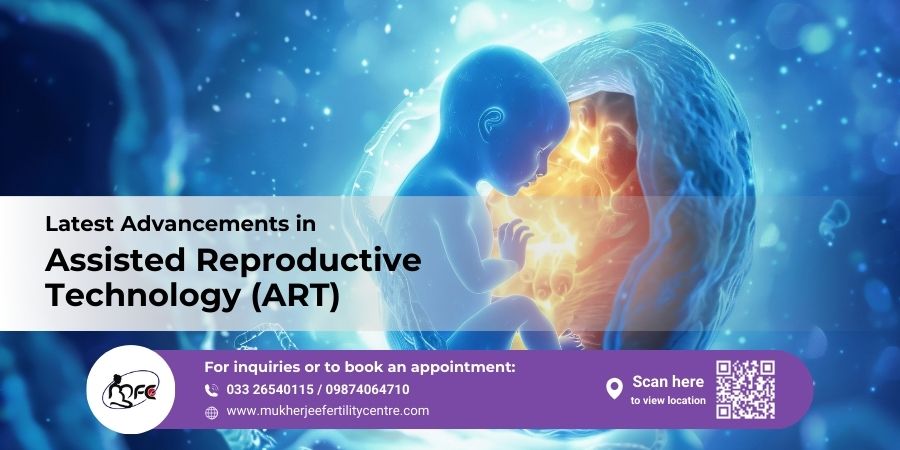
Give a Brief Overview of In Vitro Fertilization (IVF) and Why a Couple Facing Infertility Might Consider It
By MFC on 16,Sep 2023
For couples seeking to start or grow their families, dealing with infertility may be an agonizing and emotionally taxing journey. For people who are having trouble getting pregnant, thankfully, advances in reproductive medicine have created a number of options. In vitro fertilization (IVF) is among the most popular and successful medical procedures. We'll go into great detail about what IVF is, how it functions, and why it can be a good option for infertility-stricken couples in this detailed guide.
What Is IVF (In Vitro Fertilization)?
When couples have trouble becoming pregnant naturally, in vitro fertilization, or IVF as it is more popularly known, is a medical treatment used to help them conceive. The phrase "in vitro" literally translates to "in glass," denoting that fertilization takes place outside of the human body, generally in a laboratory setting.
Ovulation in the IVF process Stimulation: The IVF procedure often starts with the introduction of hormonal drugs to stimulate the ovaries to generate lots of eggs. Increasing the likelihood of getting healthy embryos is the goal of this step.
Egg retrieval: Egg retrieval is a brief surgical procedure that is carried out when the eggs are at their ideal size and development. The eggs are taken out of a woman's ovaries using a needle. To reduce discomfort, this is usually done while under anaesthetic.
Sperm Collection: The male partner or a sperm donor's sperm is sampled on the same day as the egg retrieval. After that, the sperm is prepared for fertilization by being processed.
Fertilization: Eggs and sperm are joined in a controlled atmosphere in a lab setting to fertilize an egg. The development of the embryos is watched as strictly monitored during fertilization.
Embryo Culture: To give the generated embryos time to grow and mature to the point at which they can be transferred, they are cultured for a short period of time—typically 3 to 5 days.
The healthiest embryos are chosen for placement into the woman's uterus when the embryos have fully grown. Anaesthesia is not used during this rather quick and pleasant surgery.
Support during the luteal phase: To help the uterine lining and promote embryo implantation, hormone-based medicines are frequently provided.
A blood test is done to see if pregnancy has occurred about 10 to 14 days following embryo transfer.
Why In vitro fertilization (IVF) Might Be a Choice for Couples Having Infertility?
- Diverse Causes of Infertility
- Success Rates
- Control and Monitoring
- Genetic Screening
- Overcoming Male Fertility
- Unexplained Infertility
- Preservation of Fertility
- LGBTQ+ couples
There are many different causes of infertility, such as blocked fallopian tubes, ovulation problems, low sperm counts, and unexplained reproductive problems. IVF is a therapy option that is adaptable since it can address several of these factors.
Many couples have realized their parental dreams via IVF, which has a shown track record of success. Success rates vary based on a number of variables, including age and the underlying reason of infertility, but IVF techniques are always being improved.
The process of IVF offers a great degree of control and supervision. Healthcare professionals can increase the likelihood of success by meticulously controlling the fertilization and embryo development in a lab.
IVF enables for preimplantation genetic testing (PGT) for couples who have a history of chromosomal abnormalities or known genetic illnesses. As a result of this screening, there is a lower chance of conveying genetic problems to the offspring and the identification of healthy embryos.
In cases of male infertility when sperm quality or quantity is an issue, IVF gives the choice of employing donor sperm or cutting-edge sperm selection techniques to boost the likelihood of successful fertilization.
Couples may occasionally be given an unexplained infertility diagnosis, which means no obvious cause has been found. Due to the fact that IVF avoids any potential barriers to fertilization, it may be a good alternative under certain circumstances.
For people or couples undergoing chemotherapy for cancer or other illnesses that could endanger fertility, IVF can be helpful. To preserve their reproductive possibilities, they can decide to store eggs or embryos for later use.
When a couple wants to have biological children, IVF is a vital choice. It allows same-sex partners to produce embryos for implantation or surrogacy using either their own or donor gametes.
Considerations and Conclusion
Many couples struggling with infertility find hope in IVF, but it's important to go into this procedure with reasonable expectations. Not every situation will end in pregnancy, and it can be emotionally and financially demanding. In order to evaluate unique situations, go over options, and create a customized treatment plan, speaking with a fertility specialist is essential.
Consequently, in vitro fertilization (IVF) has transformed reproductive medicine and emerged as a ray of hope for couples who are having trouble getting pregnant. IVF has transformed many lives by assisting individuals and couples in realizing their parental aspirations. Its high success rates, adaptability in handling varied reproductive challenges, and capacity to offer genetic screening choices all contribute to this. The future is even more promising for those pursuing IVF as a means of motherhood as technology and practices continue to progress.
Couples struggling with infertility have benefited greatly from Mukherjee Fertility Center's role as the city's first IVF centre in Kolkata. MFC has played a significant part in shifting the perception of infertility in the area through its medical knowledge, emotional support, and community involvement. This has been accomplished in addition to helping couples realize their aspirations of parenting. MFC continues to serve as a source of inspiration for couples seeking to have children.









